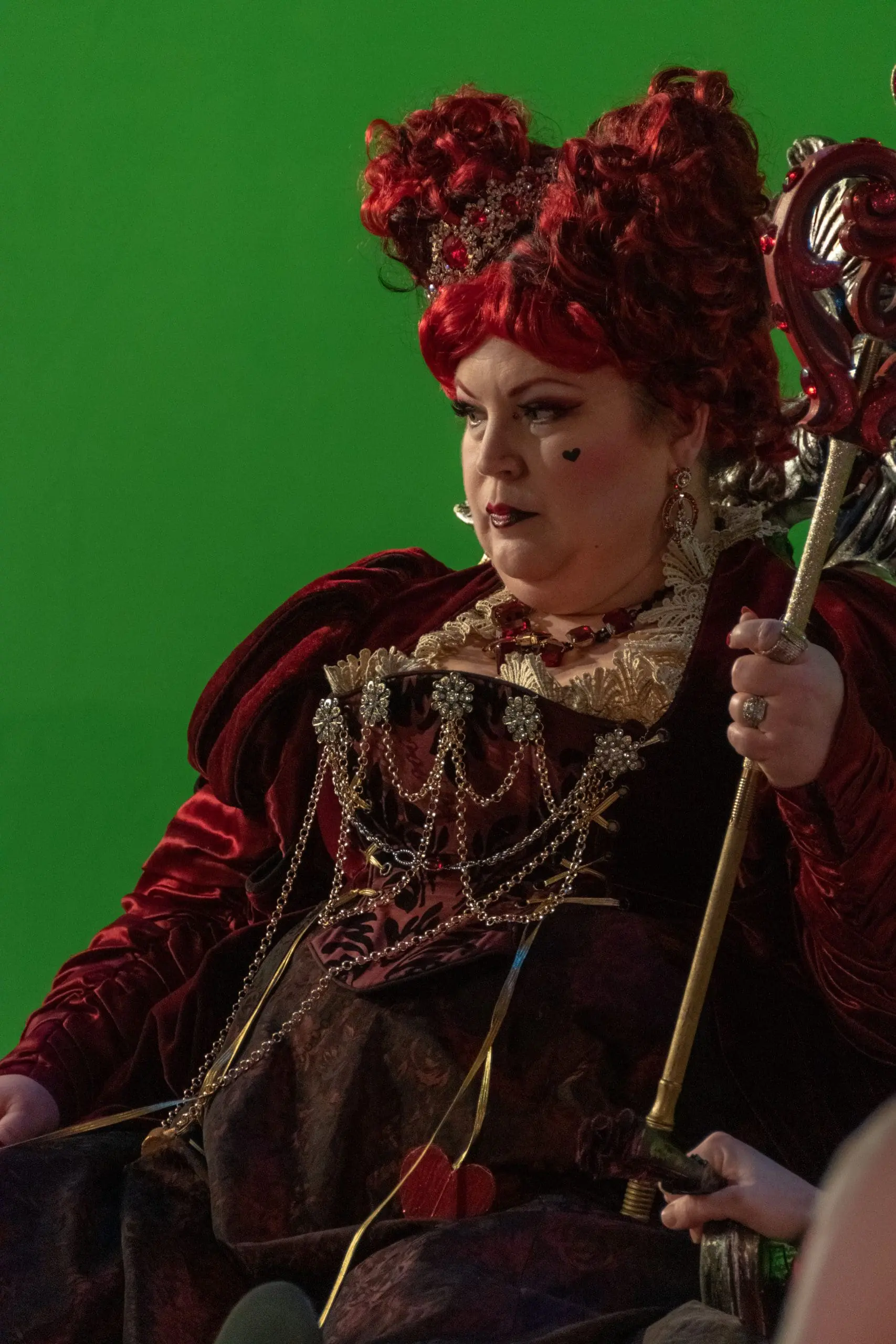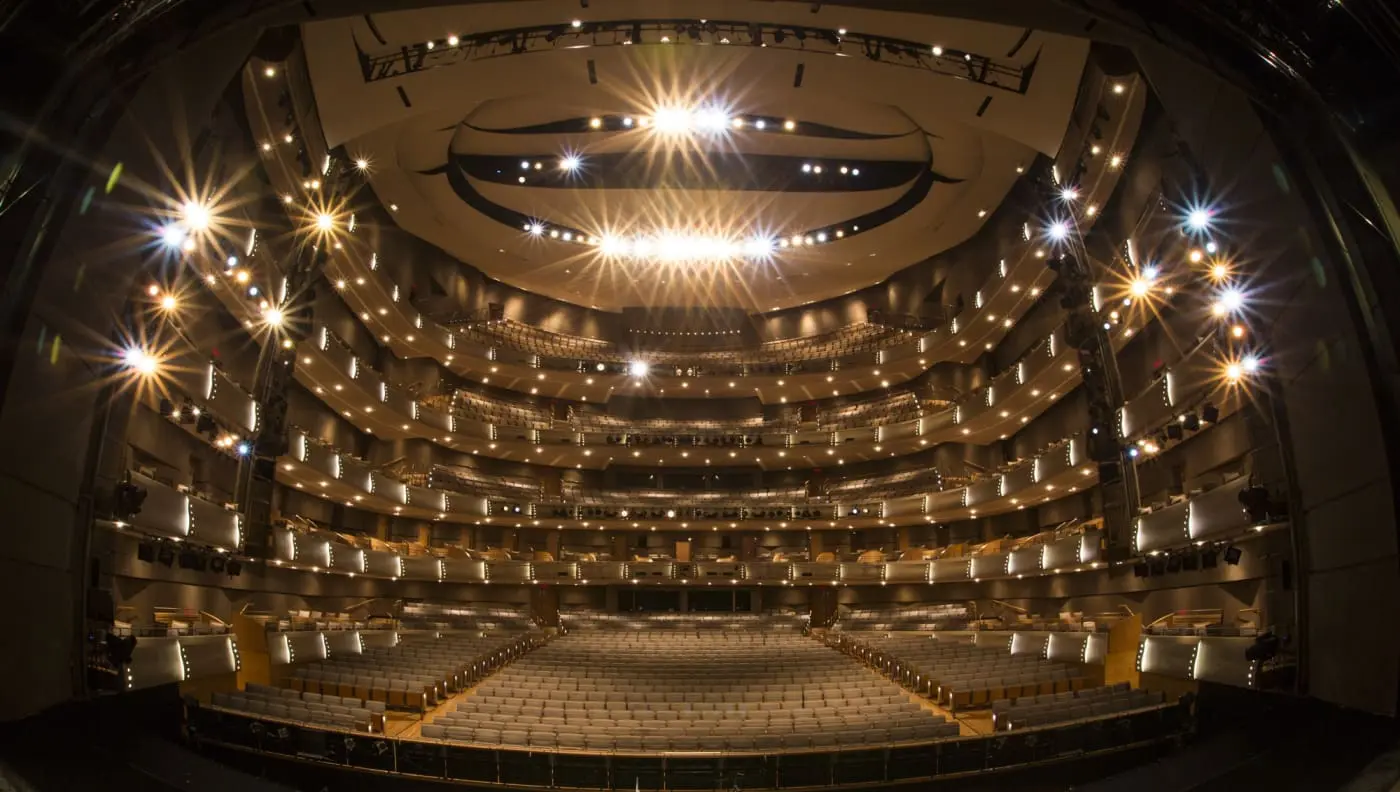In this time of great uncertainty, art has been a soothing balm to the worries and fears felt by many. In its purest form, art is the expression of human connection, of establishing community and understanding for one another. Within the opera realm, never has this been truer than in the current climate, where digital opera has been key in keeping the public connected to the art form. It’s also allowed singers to safely practice their art, even perhaps without some of the pressures around ‘perfection’ these artists normally face.
Yet, as the pandemic continues, opera artists can’t help but wonder about the future. Is digital opera truly the future? Or is the magic of live opera too powerful to be replicated on screen? For mezzo soprano Megan Latham the answer lies in the fact that digital operas are in themselves works of art. And it is this art that has sustained us during the pandemic.
“Art is what we count on, in times of trouble,” said Latham. “…we need art to feed our souls. Yes, we have to feed our ourselves in in fundamental ways too. But ignoring our spirit will leave use in bad shape. We have to remember it’s not just as simple as providing a roof over our head. There’s more to a well-rounded society.
“That’s one of the things that I worried about with my fellow artists. What would happen to opera, what if…no art was being put out there? We might be forgotten, and we’d start thinking ‘Oh well, the arts really don’t matter.’ I’m so grateful for these opportunities to keep producing art because I wasn’t [feeling] inspired alone.”
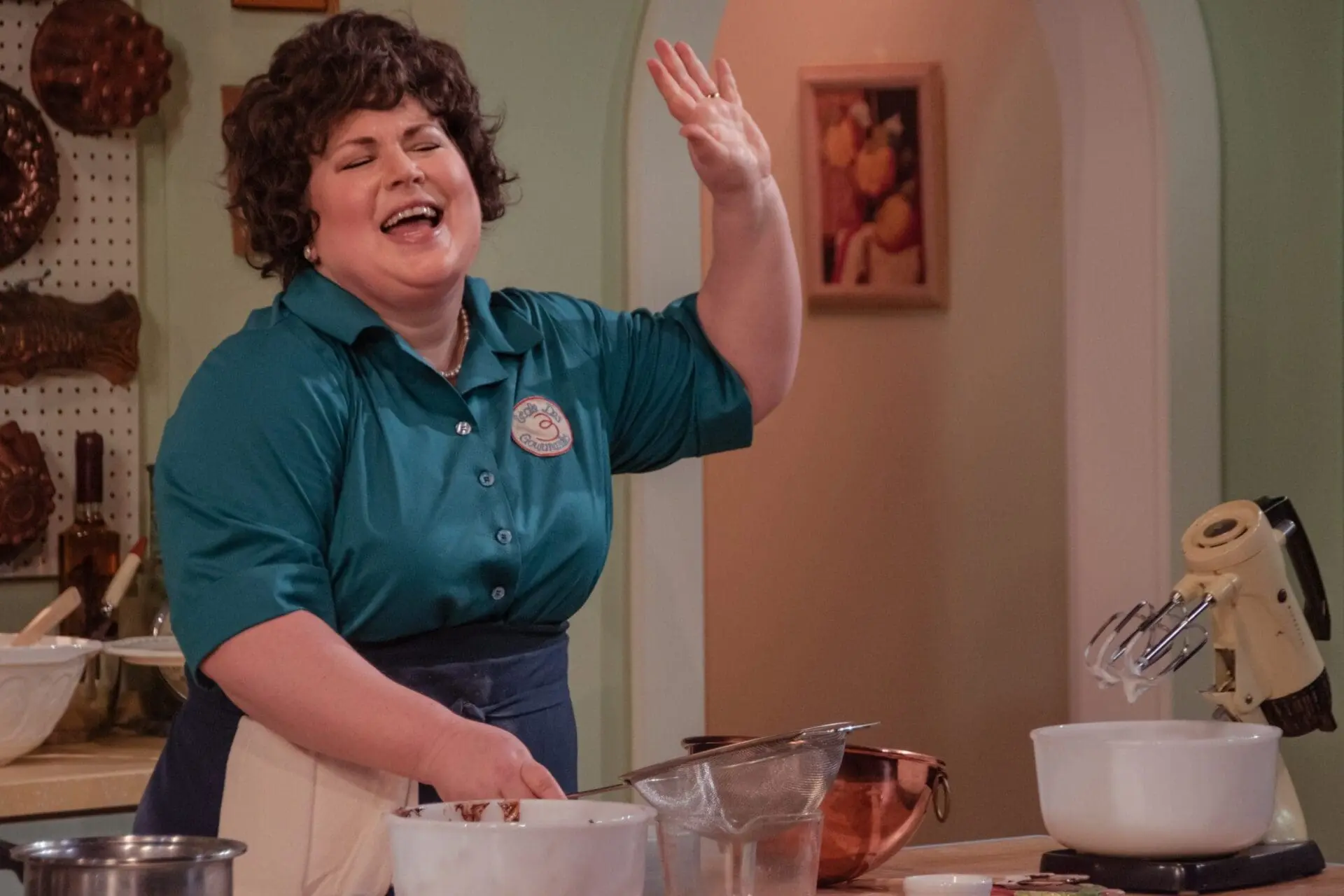
Megan Latham (Julia Child) in Pacific Opera Victoria’s production of Bon Appétit!. Photo Credit: Mackenzie Lawrence Photography
Its something that Latham, with 15 plus years of professional singing under her belt, says thoughtfully. Since the beginning of May of last year, the mezzo soprano has been involved with an impressive number of digital projects. This includes a hand washing video called In the Hand by Pacific Opera Victoria (POV), a yet to be released filmed production of Elizabeth Raum’s 1985 opera The Garden of Alice (POV) in which she plays the Queen of Hearts, and most recently Bon Appetit and The Italian Lesson (POV). The digital experience gained from these projects, Latham says, has pushed the limits of what she believed herself capable of doing; these performances required the singer to adapt to singing with a mask while rehearsing, isolating herself from others, and figuring out how to prepare for operas without a proper rehearsal space and limited access to pianists and vocal coaches. She also had to rethink the way she understood opera.
“When opera is performed, it’s hours at a time. So, the concept of breaking down the opera into small sections was fascinating to look at. And to always be thinking of it in scenes separate from one another, as opposed to this big arc from beginning to end, was different. It was very fun. But very different.”
Furthermore, Latham says that working on a digital opera, especially The Garden of Alice and the two Hoiby pieces, was nerve wracking in its permanence.
“What I love about my career is the immediacy of it. Send it out into the universe and it lasts that long. I don’t have clips on YouTube unless somebody else put them there. So, I was really so much more nervous about it than I expected to be.”
And then there was also the lack of human connection to contend with.
“I didn’t realize how reliant my career was on other people,” said Latham. “It takes a village to put on operas, and it’s magic. When an audience member walks by and they’re like, ‘I can’t believe it! How did they do that?’ Its magic. It’s orchestrated magic. And I miss the immediacy of live operas. I miss the camaraderie. I miss the easy socialization with everybody, like being able to see someone’s entire face.
“I love the structure of it. I love the companies I work for. I love the material, the challenges. I really love my job. And its very scary, thinking it got taken and I hope that it hasn’t.”
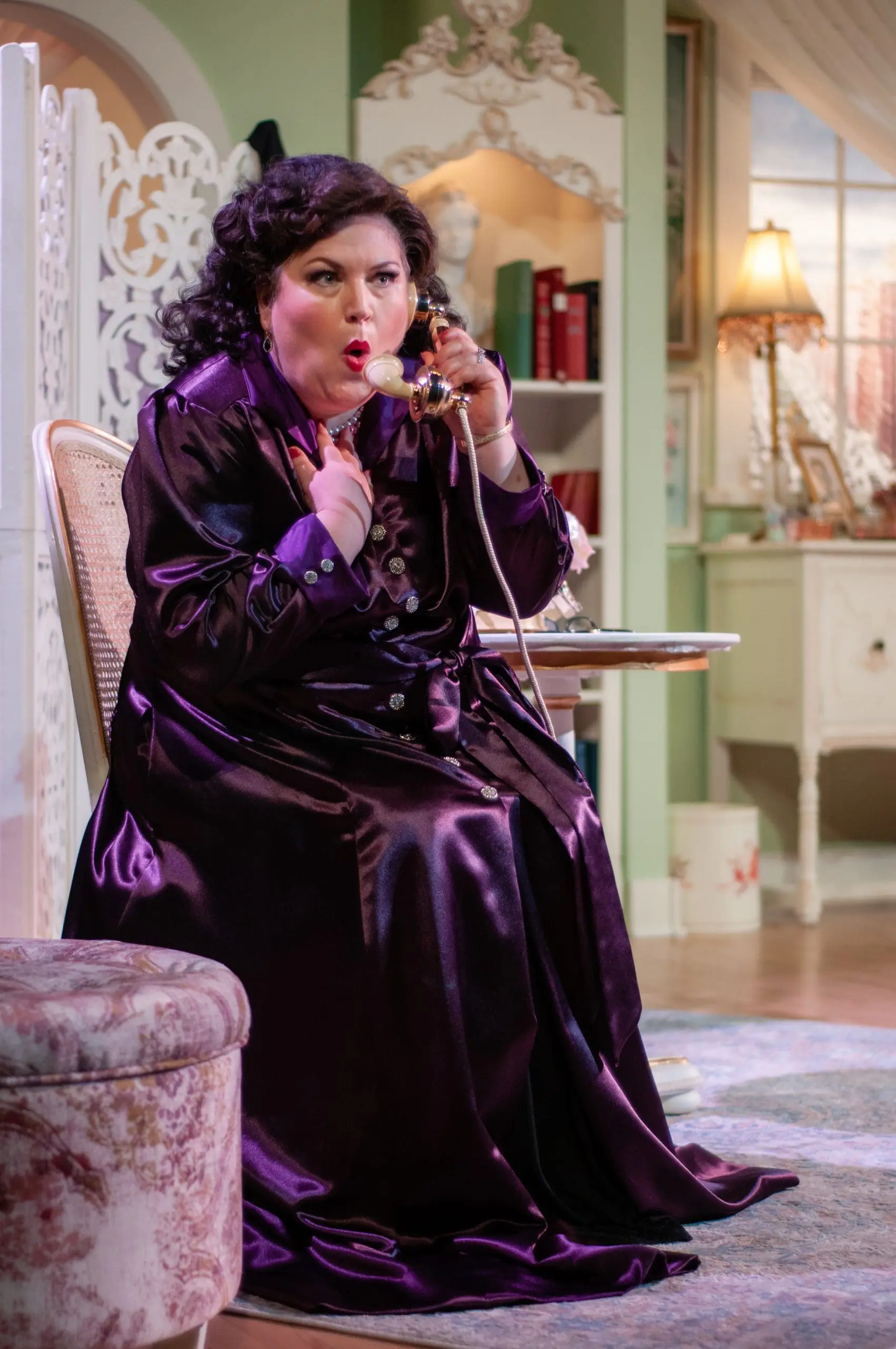
Megan Latham (Mrs. Clancy) in Pacific Opera Victoria’s production of The Italian Lesson. Photo Credit: Mackenzie Lawrence Photography.
Latham’s words about connection are echoed by many in the opera world right now. In fact, the pandemic re-established how opera is an art that truly embodies the emotion of the people. Opera’s power comes from all its facets—the singers, the production team, the audience—coalescing into a bigger, emotional whole. It’s also why, as important as digital opera is right now, Latham feels you can’t replace the magic of the live experience.
“The problem with the pandemic is that it’s made us all feel like we’re one of a very small number,” she says. “When you sit in an audience you’re one of a 1000, or 2000, or 3000. You remember that you’re part of a larger thing, a larger entity. And there’s magic in the audience, when you realize that you’re [all] laughing. You’re sitting next to somebody who’s maybe so different from you but you find the same thing funny. There’s a unifying element to a shared experience. So, it’s a unifying experience.”
Originally from Abbotsford, British Columbia, the singer’s opera beginnings started at a young age and have now spanned into a busy career. The mezzo soprano has worked at most of Canada’s major opera companies such as the Canadian Opera Company, Tapestry Opera, POV, and Edmonton Opera. Like many artists, the Latham experienced a great sense of loss when COVID-19 restrictions forced opera houses to close their doors and opera singers found themselves suddenly aimless. As such, the mezzo said she’s grateful that she took a chance on the digital projects that have come her way. She’s grateful that she’s been able to get back to opera with a purpose. But, she also acknowledges, that it introduces a lot of changes not all opera lovers might like.
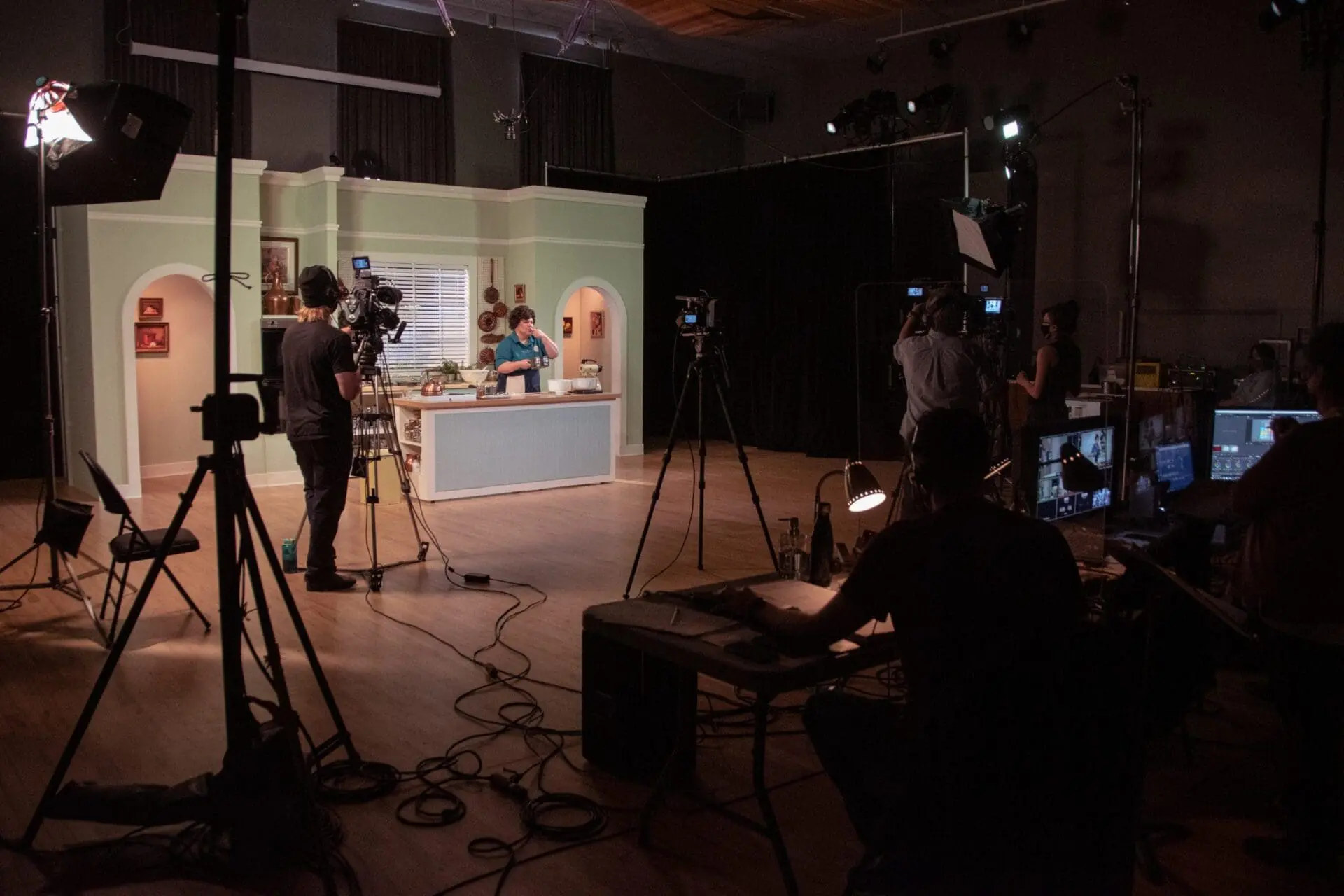
Megan Latham (Julia Child) in Pacific Opera Victoria’s Bon Appétit! With the film crew from Gamut Productions, Stage Manager Christopher Sibbald, and Director Glynis Leyshon. Photo: Mackenzie Lawrence Photography
“There’s a part of me that wonders if [what we filmed] is going to be around forever,” says Latham. “I always liked the immediacy of opera. I like that I wasn’t responsible for anything but the performance, right now, present tense. And in 10 years, are these performances going to be still out there? Are they going to still be relevant and are people going to judge me on them? I was never interested in some big, long, diamond dynasty thing about my career. I really am a present tense kind of person.
“I don’t know if the digital projects are just getting us through this time, or if [opera] is going to change and our digital history is going to become important. And then for the up-and-coming singer, could their whole career be a digital career? And what exactly does that mean for them?
“But this is a time for courage. Nothing’s easy about [opera], whether it’s live, or digital. And it’s not always easy to find [courage] when we’re nervous and fearful. But I challenged myself to have the courage to say yes and see how things unfold. And I look forward to digital performances as well as live performances.”
Latham’s time in the digital world is far from over. The mezzo soprano has at least two digital projects in the works, one of which is The Wild Rose Project with Edmonton Opera. The singer’s Queen of Hearts in POV’s Garden of Alice is set for future release, which will be sure to delight both opera and Lewis Carroll fans alike.

